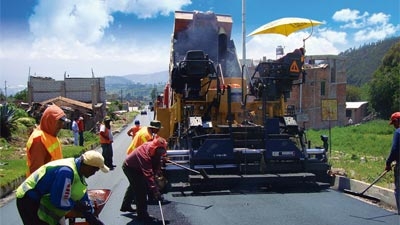“We didn’t use to have bus service to the communities; now we have it every hour.” “Now we have a paved highway and signs; it’s comfortable for traveling.” “When there was a drought, there was no water for the animals, for the pasture, for irrigating the produce we consumed and much less for crops for sale.” “With the water, people returned to the community and it is improving their quality of life.”
Today, these are some of the phrases that can be heard on the roads of Chimborazo, one of the largest provinces in Ecuador’s central highlands.
The half-million inhabitants of the province work in agriculture and livestock-raising, particularly dairy cattle. For many years, the long distances, poor roads and limited investment in agriculture stymied the development of the province.
But that is changing. Since 2008, the Chimborazo Development Investment Project (PIDD), managed by the World Bank and the Autonomous Decentralized Government of the province, has invested US$ 21.2 million to improve agricultural production and facilitate market access of local products. After five years of project implementation, the results of this rural development initiative are encouraging.
Authorities, technicians, community leaders and residents in general have benefited from investments that have improved their quality of life.
Reaching markets and promoting inclusion
“Having a good road not only improves transportation, but also health. Now produce arrives to markets in good condition; it no longer arrives damaged. With the road, we also have a great advantage for tourism,” says the prefect of Chimborazo Province, Mariano Curicama.
So far, over 50 kilometers of roads have been improved, enabling access to health and education services and more goods. This work has resulted in a 50% reduction in travel time and a 55% savings in maintenance of the vehicles circulating on these roads. To maintain the roads in good condition, 12 road maintenance associations have been formed.
For Aurelio Guallan, who is responsible for maintaining the irrigation system of Licto Parish, “the project has also helped people return to their communities; previously, there was a lot of migration,” he says.

